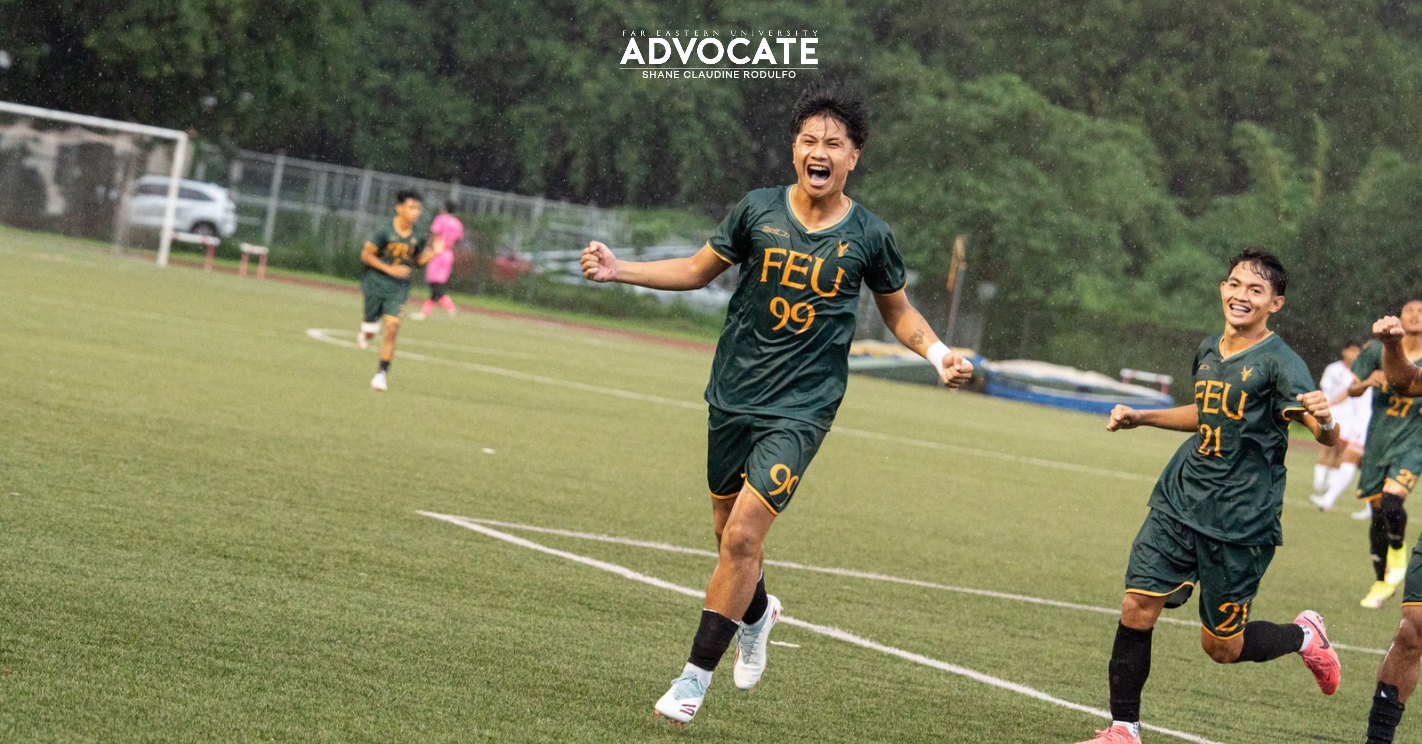
FEUCSO heads donation drive with Angat Buhay for Kristine victims
- October 25, 2024 15:37
FEU Advocate
October 31, 2024 15:55

The air was filled with anticipation as Batch 2027 student-nurses gathered at the Far Eastern University (FEU) Main Auditorium for the 70th Capping and Candle Lighting Ceremony last October 19. Dressed in their crisp white uniforms, they prepared to receive their nursing caps and light candles, honoring the profession’s time-honored tradition. However, as the ceremony began, what should have been a moment of triumph for many began to illuminate the cracks beneath the surface.
The ceremony is deeply rooted in the teachings of Florence Nightingale, dubbed the “Lady with the Lamp,” who laid the foundation for modern nursing. This rite of passage marks the moment when second-year students can finally be called "student-nurses," signifying their transition into hospital training. The nurse's cap symbolizes their responsibility to care for patients, while the lighting of candles reflects the compassion and knowledge that will guide them as they move forward in their profession.
For Batch 2027, the event should have been a proud, almost surreal, moment. Instead, frustration grew regarding the event's organization.
In an interview with FEU Advocate, second-year Nursing student Isabel Michaela Malapaya expressed how her excitement gave way to disappointment.
"I was excited leading up to the event, but the venue was underwhelming for something this important," Malapaya said.
The venue, while familiar, appeared limited in size compared to previous ceremonies held in larger venues such as the SMX Convention Center Manila or the Philippine International Convention Center.
An announcement about how each student could bring only one companion also cast a further shadow over the day.
Ryca Ella Ysip, a second-year student and executive committee member of the FEU Nursing Society (NurSoc), voiced her concerns.
“If the goal is to foster excellence and support, it should also recognize the importance of family in our journey, especially our parents. So, the limitation on family attendance felt very restrictive,” she stated.
Despite the setbacks, she credited the NurSoc for doing their best amid difficult circumstances.
"We were aware of the limitations, but we did everything we could to make sure the day ran smoothly. The volunteers, my fellow committees, and the officers—they really stepped up," she commended.
Even as she worked behind the scenes, Ysip could not shake the sense that something was missing—although her batchmates were gathered at the FEU Main Auditorium and family members filled the seats, the atmosphere lacked the usual ‘grandeur.’
To accommodate the large number of attendees, the capping and candle-lighting ceremony was divided into three separate sessions, unintentionally creating distance between friends who had hoped to share the experience together. Among them was Precious Gem Anilao, a second-year student who felt the absence of her close circle.
Anilao had looked forward to this day, picturing herself walking the stage alongside friends who had been with her through every challenge in their nursing journey. Waiting her turn, she couldn’t help but feel the gap created by the separation.
“Ang tagal naming hinihintay ‘to, pero, dahil sa [lack of] space, kailangan naming mahiwalay (We’ve been waiting for this for a long time, but, due to the lack of space, we needed to be separated),” she shared, her voice tinged with disappointment.
While the occasion was still significant, the shared sense of unity Anilao had envisioned seemed to fade in the divided crowd.
“Ito na lang sana 'yung moment namin na magkakasama kami, pero hindi nangyari (This was supposed to be our moment together, but it didn’t happen),” she added.
Behind the scenes, NurSoc, Batch 2027 government, and the FEU Nursing Department faced distinct challenges in organizing the ceremony.
NurSoc Auditor Chastine Maisie Victorio explained that careful coordination with both students and administrators was essential in making the event meaningful.
“We chose the [FEU Main] Auditorium to make it feel special—a real reflection of Tamaraw pride,” she shared, noting how holding the ceremony on campus created a sense of home for this milestone moment.
Although they considered larger venues, the Auditorium offered a blend of solemnity and familiarity.
“Other venues were options, but being on campus felt more connected to our batch’s spirit,” she added, underscoring the unity they hoped to inspire.
Still, planning was no easy feat amid academic demands and limited resources.
“Balancing exams and organizing was tough, but everyone—committees, volunteers, officers—came together to make it happen,” Victorio said, her pride in the team’s dedication evident.
Victorio acknowledged the frustrations of her batchmates.
“It wasn’t easy, but we did everything we could to make it memorable. We’re taking all feedback to heart to improve future ceremonies,” she concluded, hinting at a commitment to leave a positive legacy for future batches.
Despite frustrations running high, there were still moments when the significance of the ceremony broke through the discontent.
Newly-inducted student-nurse Kyla Esquiredo recalled the surge of emotion she felt when her cap was placed on her head.
“When I was being capped, that’s when it really hit me. I'm officially a student-nurse now. All the hard work, the sleepless nights—it was all worth it at that moment,” Esquiredo shared with pride.
Together with Esquiredo and other TamNurses, this moment had been a dream since their first day in college, symbolizing not just a beloved tradition but the culmination of their hard work. For these students, the ceremony was a meaningful milestone, signaling their readiness to embrace their roles as future nurses.
Nevertheless, for future batches of TamNurses, the lessons learned from this year’s ceremony could pave the way for a more seamless and meaningful celebration.
The ceremony may not have been perfect, but it was still a pivotal moment for Batch 2027. Despite the logistical shortcomings and moments of disappointment, it marked their progression towards becoming registered nurses. For many, it was a step closer to realizing their dreams, a reminder of the hard work, and dedication that nursing demands. After all, the dream of becoming a nurse is hard-earned, and moments like these deserve nothing less than the best.
- Franzine Aaliyah B. Hicana
(Illustration by Miles Munich Montreal Jimenez /FEU Advocate)









